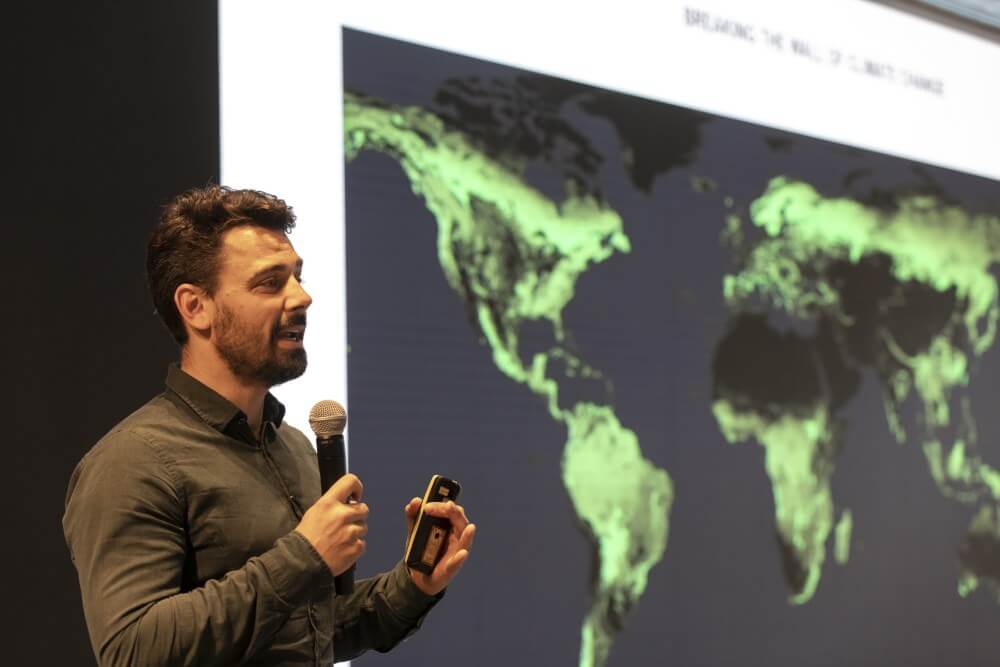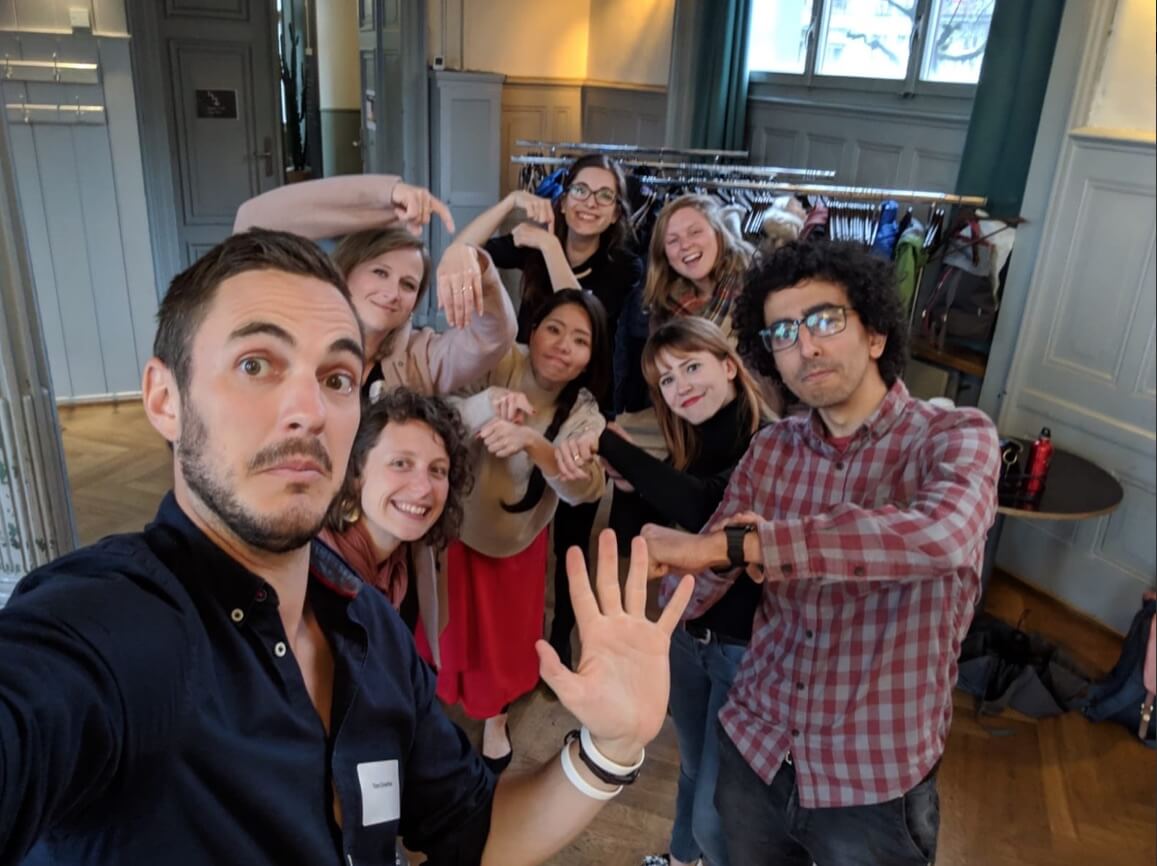By Constantin Zohner and Thomas Crowther
One year.This is the average amount of time a scientist spends working on an individual paper. Six months.This is the average length of the process spanning form submitting the paper to a scientific journal to it being published, given the paper is neither rejected nor sent back with major comments requiring another couple of months of work. 3 minutes. This is the maximum amount of time a scientist gets to captivate its audience and present his or her work.
Sounds too short? Constantin and Thomas both recently entered science communications competitions and learned one thing: brevity is the source of wit. Or the shorter and crispier, the more impactful.
Constantin, The Falling Walls competition
When the Berlin Wall fell in 1989 it did not only tear down a heavily guarded concrete barrier that physically divided a country, its fall indeed should become a symbol for the reunification of ideas and innovation that enables a united society to redefine standards. The Falling walls competition wants to do just that: enable young minds to share their knowledge and present scientific solutions that can break the walls of problems threatening society. I wanted to have a go and show that through cooperation and determination everything is possible – even breaking the wall of climate change.

Condensing any topic into a 2.5 minutes speech is not exactly what I would consider an easy task; talking about climate change with its complexity, many contributing factors and implications even less so. But, with climate change being the biggest and most imminent threat to humankind, I believe it’s an extremely important task and also – this is something I learned in the process – a very rewarding one: it forces you to think about the message you want to deliver and what is essential achieve this. While practicing with a stop watch next to me I noticed that up to 80% of what I usually say when giving a talk can be left out without losing or weakening the message. Actually, in the contrary, by replacing long sentences by short and concise ones, the message becomes much clearer, crisper, benefitting you as a speaker and adhering to the attention span of your audience.
What I’ve learned in a nutshell: Straightforward and succinct communication is key for bridging the gap between scientific output and public attention or awareness. In order to have a real impact, engaging the society as a whole and supporting the work of millions of people and NGOs, climate change research needs a strong voice.
Thomas, FameLab competition
Throughout my career I held hundreds of presentations. From an hour-long speech or 10-minutes flash talks down to 1-minute answers to journalist’s questions – I really thought I was up to every trick. And boy, was I wrong! As I sat in the audience listening to my competitors from various fields of research, my confidence started to shrink by the minute and when it was my turn, I barely stumbled my way through the first round of FameLab. I knew I had to step up my game, if I wanted to get any further in this competition.

The problem was not that I did not believe in my ability as a speaker or the impact of my work – actually, I think that climate change research is one of the easier topics to sell, everyone has heard about it and there is no introduction needed. The challenge comes with the time constraints. What aspects do reallymatter? What can be left out without weakening the message? Which details are interesting to what kind of audience? How to summarize without oversimplifying? Competitions like FameLab force you to approach your research from a different perspective, to focus on the key message and how to link the problem and the solution in the most logical and straightforward way. I truly believe that every scientist can learn a lot from this process – also off stage: thinking about the most straightforward way to address an issue limits the potential of getting lost in details over details, which happens in research more often than not.
What I’ve learned in a nutshell: Shifting the emphasis to a different word in a sentence can change its meaning entirely. This cannot only strengthen the message, but also save a lot of additional sentences and explanations. Engaging communications can make all the difference and is critical for a scientist to have an impact through their science.
